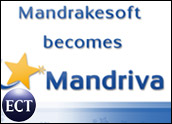
French Linux distributor Mandrakesoft will acquire its Brazilian counterpart, Conectiva, the two companies announced yesterday.
Mandrakesoft will buy all of Conectiva’s stock for US$2.3 million to take over the 60-employee company, which had $2.2 million in revenue and reached the break-even point in the last six months of its fiscal year.
Still in Second Tier
One analyst said the move will not be enough to propel Mandrakesoft, which listed $1.8 million in earnings income on $6.7 million in revenue in its most recent fiscal year, into the same league as the big players in the Linux market.
“The enterprise Linux distribution market has consolidated around Red Hat and SuSE,” Stacey Quandt, senior business analyst with the Robert Francis Group, told LinuxInsider. “Also, the cost for independent software vendors to certify their applications for multiple distributions means that MandrakeSoft will remain a regional phenomenon.”
Added Local Value
But Tony Iams, senior analyst with Ideas International, said he believes that the merged company offers value in its local markets that could eventually lead to growth.
“Yes they’re small,” he told LinuxInsider, “but they have added value in their respective markets. By merging like this, they are going to develop synergy that will take them out of their markets.”
The company may have an advantage in that governments outside the United States looking to install Linux may feel more comfortable with a local presence, Iams said.
International Focus
Conectiva had suffered recent business losses that might have edged it toward the MandrakeSoft deal.
“Conectiva’s participation in the failed United Linux initiative and the loss of key Linux kernel developers Rik Van Riel and Marcelo Tosatti to other vendors weakened the company’s Linux engineering efforts,” Robert Frances’ Quandt said.
United Linux was a partnership formed by Caldera, Conectiva, SuSE and Turbolinux. It offered one distribution in 2003 and then called it quits.
Ideas International’s Iams did not see any downsides to yesterday’s move, although he conceded that some might not like the idea of fewer distribution choices.
“I think people shouldn’t be too worried about the consolidation,” he said. “Potentially you will have an entity that is focused on international requirements. Now you will have someone who really understands local government requirements and can probably generate a more valuable solution.”




















































